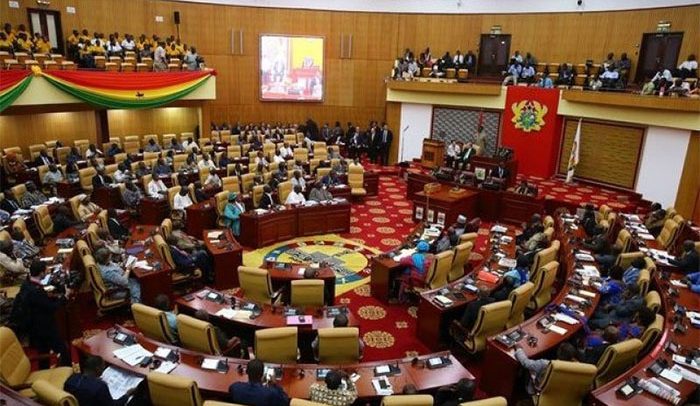Parliament will resume its sittings for the first meeting of the second session today after the December chaos that saw legislators openly throwing punches during a vote over the E-Levy.
Ahead of the meeting, the Speaker of Parliament, Alban Sumana Kingsford Bagbin, has called on the two sides to dialogue, cooperate and collaborate more to achieve consensus.
“Ghana has a hung Parliament and not near-hung Parliament. The two major parties in Parliament have137 members apiece and what is interesting about the 137 is that the males are 117 each and the females are 20 each,” Mr. Bagbin stated at the opening of a three-day conference of the Commonwealth Parliamentary Association (CPA) in Accra yesterday.
According to him, the claim that the independent MP, Andrew AmoakoAsiamah, is a member of the party in government is “erroneous and unconstitutional”, saying, “He knows very well that if they both (First and Second Deputy Speakers) belong to the same party, they cannot both hold the positions of Deputy Speakers of Parliament.”
“It is not me saying it; it is the 1992 Constitution. It is the Standing Orders of Parliament. And so, it is this independent member, who is a former member of the party in power that they want to draw their strength from,” he noted.
Mr. Bagbin continued, “I am the Speaker; I don’t take part in the decision, but it is my duty to enforce the rules. And in trying to do this, definitely a country that is used to tumultuous majoritarian governance would definitely meet resistance.”
“But these are the teething problems of change or transformation. I think that the only way is to get the two sides to consult, dialogue, cooperate with each other, to compromise, to collaborate and to achieve consensus,” he said.
He noted that “this is an imperative imposed on us as political leaders by the people of Ghana. We have no choice. And so, when the other side fails to gather their numbers and a decision does favour them, the Speaker cannot be the cause, because the Speaker is not counted among Members of Parliament.”
Mr. Bagbin maintained that the composition of Ghana’s Parliament, as a hung one, presents the legislature of the unique opportunity to right some errors in the past.
“As the Speaker of Ghana’s Parliament, one such posture I am pursuing is leading a process that will ensure that the legislature is strengthened to play its role of an equal partner in the deliverance of an open, transparent and accountable one.”
“As part of the strategic objective of Ghana’s Parliament (this document was produced by the7th Parliament), one of them being to enhance accountability, is to assist in sustaining Ghana’s democracy.”
The Speaker indicated that he was a firm believer of what Lijphart describes as “consociational democracy” which he defined as a process of arriving at decisions through the most representative parliamentary coalition process.
“You don’t just come in because I am the party in power or I am an individual who is the executive President and this is what I want; no more no less,” he said, adding, “I say this clearly not just for my experience, but from the knowledge of the option we took as a country.”
“It is possible in Ghana to have a government with minority Members of Parliament, and it is possible in Ghana to have an independent person being a president of Ghana.”
“That is the bigger framework we crafted for ourselves. So if you don’t learn this and invite this culture of give and take, of jawjaw, of trying to look at the national interest, but loot at the parochial party interest, then our democracy will definitely not succeed. And it is not the prayer of anybody,” he posited.
Minister of National Security, Albert Kan-Dapaah, said an objective diagnosis of the current legislative situation is the first step to deal with the pitfall and the destructive Parliament.
“We need to be able to work together to realise the benefits of the near-hung Parliament,” he suggested and said an admission of this fact will enable the deadlocks that arise from the near-hung Parliament to be considered as necessary conflict.
He recommended problem-solving approaches, instead of confrontation, to deal with the disagreements and entrenched positions of the two sides of the House.
BY Ernest Kofi Adu


